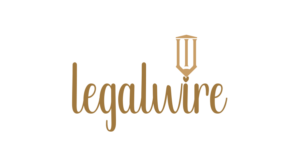The world is undergoing a rapid technological transformation, with innovations in artificial intelligence (AI), machine learning (ML), and other smart technologies redefining how industries operate. From automated healthcare diagnostics to predictive financial modeling and autonomous vehicles, smart technologies are embedded in everyday systems. As these innovations reshape traditional business models, legal systems are being challenged to keep up. Among the most impacted sectors are IT and tech-based enterprises, which now require comprehensive IT company legal support to navigate the shifting regulatory environment.
One of the most notable changes is how courts and legal frameworks are evolving to interpret laws in the context of autonomous decision-making. For instance, questions around liability in AI-driven processes are becoming more complex. Who is responsible when an autonomous vehicle causes an accident—the manufacturer, the software developer, or the end user? Legal systems are beginning to recognize the need for clearer guidelines and are working towards defining accountability in these cases. Regulatory agencies are also exploring updates to compliance standards, particularly in industries where smart technologies play a critical role.
Beyond accountability, data privacy and protection laws are undergoing significant revision. With smart technologies heavily reliant on data collection and real-time analysis, there’s growing concern about how personal data is stored, processed, and shared. Lawmakers across jurisdictions are introducing stricter policies to address these concerns, such as GDPR in the EU and CCPA in California. Companies developing or implementing smart tech need strong technology law services to ensure compliance and avoid hefty penalties. The role of legal experts in advising businesses on regulatory risks and policy adherence has never been more vital.
Another key area of evolution lies in intellectual property (IP) law. As AI tools are now capable of generating creative works, coding software, and even writing content, traditional definitions of authorship and ownership are being questioned. Legal systems are being forced to reconsider how copyright and patent laws apply when non-human entities contribute to or entirely create intellectual assets. This shift requires a fresh legal perspective that aligns with the pace of technological change and offers protection without stifling innovation.
Smart contracts—digital agreements that self-execute based on predefined conditions—are another advancement prompting legal adaptation. These contracts are prevalent in blockchain technology and are changing how transactions are validated and enforced. However, issues related to enforceability, jurisdiction, and dispute resolution still exist. Legal professionals are working on ways to validate and integrate smart contracts within traditional contract law, ensuring that they can be relied upon in legal disputes and business transactions alike.
The global nature of smart technologies also introduces cross-border legal complexities. Innovations developed in one country can have far-reaching impacts globally, especially in cloud computing, AI services, and machine learning applications. Multinational IT firms require IT company legal support that understands both local and international laws. This includes understanding data localization requirements, cybersecurity standards, and intellectual property protection across various jurisdictions.
Given these growing legal challenges, modern businesses need agile and informed legal partners who can align with their technological innovations. The demand for proactive technology law services is increasing as organizations seek to future-proof their operations and avoid unforeseen legal obstacles. Legal advisory services are no longer just a support function—they have become strategic assets in tech-centric business models.
In this complex legal and technological landscape, Aurum stands out as a forward-thinking legal partner for tech companies and innovators. By combining deep legal expertise with an understanding of cutting-edge technologies, Aurum helps businesses navigate legal complexities with confidence. From offering comprehensive IT company legal support to delivering expert guidance on regulatory compliance, the firm empowers clients to innovate responsibly while staying aligned with the law.
